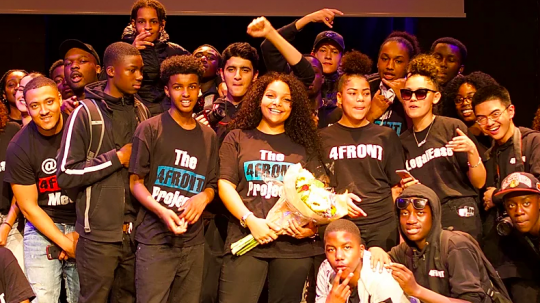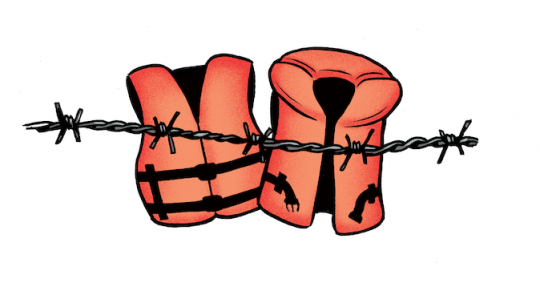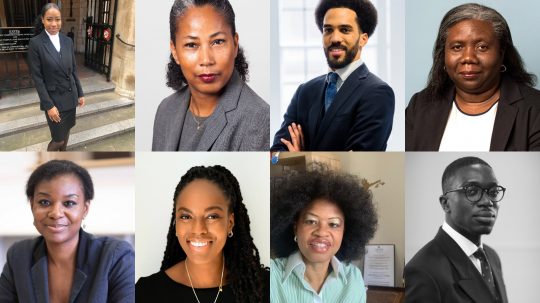
Aaron: Raphael Rowe is an investigative journalist and presenter of Netflix series Inside the World's Toughest Prisons. Raphael's knowledge of life behind bars is extensive. Before becoming a journalist, he spent more than a decade in prison convicted of a murder he didn't commit. It took him 12 years of campaigning to clear his name. Thank you so much for joining us, Raphael, How are you?
Raphael: I'm very well, thank you for inviting me on to talk to your audience and share my knowledge and experience.
Aaron: So could you start by describing what you do in 15 words or less?
Raphael: I'm an investigative journalist and a presenter on television programmes and I specialise in social issues and criminal justice issues.
Aaron: What was the most important lesson you learned during your time in prison?
Raphael: One of the lessons was that I needed people, I often thought I could do it on my own and I was the architect of my campaign. I did need the support of people both inside and outside of prison, so the one thing I learnt more than anything was to be patient, be determined, and never give up.
Aaron: What would you say was the most important lesson you've learned during your time as a journalist?
Raphael: So when I first joined the BBC, I wanted to sound and be like the institution that I was about to work for thinking that I needed to be like everybody else. And I soon realised I wasn't like everybody else, I had a completely different upbringing, I had a completely different experience in life. So my biggest lesson was to be myself to sound like who I am, to behave like who I am, and to do it the way I would do it.
Aaron: If you could immediately put right one injustice in the UK right now, what would it be and why?
Raphael: Discrimination is probably at the top of my list, just educating people and bringing people you know, an opportunity where they can collaborate with people who are different from them, not just here in the UK, but anywhere in the world, whether that's the color of their skin, their religious upbringing, it's discrimination, I think, is key when you discriminate against somebody, you put up barriers, both in your own life and in their life.
Aaron: Of the different prisons you've experienced over the course of your series, which do you consider to be the most effective and why?
Raphael: I think the most effective prison that I've been to, has to be Halden, in Norway. You know, it's a prison with a purpose and the purpose is not to punish because those who have been sent to prison are already being punished. Their purpose is to rehabilitate. It's a place where the staff are progressive and, you know, they find it shocking, that you question why they care so much, they find that is their purpose as a prison guard to care and to change the life of a prisoner. And that, for me, was outstanding.
Aaron: What's your assessment of the current state of the UK prison estate and how effective it is in terms of rehabilitation?
Raphael: I think one of the things people in the UK don't realise is that the the prison estate here in the UK differs, it is different in different parts of the country. And what we often get a diet of on our TV is the sort of local dispersal type prisons where everything's a bit chaotic. These are not the deep dark prisons that I spent time in where prisoners have served 10, 15, 20 years and the atmosphere is very different, there is a focus on therapy and some rehabilitation. And so I think the perception that the media paint in this country about prisons is sometimes misleading. More could be done, there's no question more can be done, more investment. Talking about building more prisons is the wrong approach. There are so many people in British prisons that don't deserve to be in there. People with mental health issues, women who have only committed, you know, desperate crimes to support their families, as have men. So there is a lot more that can be done.
Aaron:That leads very much into my next question. You know, the government announced in June that it was going to build three new prisons with a fourth already under construction, I just wondered what your reaction is to that?
Raphael: For the government to be talking about building prisons means they need people to put in those prisons and these are not going to be prisoners that are already in prison they're looking to put more people in prison and that should be a concern for everyone because it means they're already targeting people in the community, people in society who haven't been convicted or sent to a prison sentence, it means they're going to need those people like they have this whole kind of conveyor belt in the United States, we are moving in the same direction. It's another thing if they're talking about building new modern prisons, where they will move those that are housed in these diabolical Victorian-type establishments, so that those individuals can be treated via therapy or rehabilitation programmes, if that's what they're talking about that might be progressive. But it sounds to me like they're building new prisons, which mean they need new prisoners, which means our prison population will increase when in fact, what it really needs to do is decrease.
Aaron:The discussion around Black Lives Matter there's been calls to defend the police and to a lesser extent, also prisons and I wondered if you had any thoughts about that?
Raphael: So for me, it's about accountability. When police officers, prison officers, or things go wrong, people need to be held to account the individuals that were responsible or the people that set it up in the first place. So for me defund should be more about accountability, rather than taking funds away, when sometimes funds could make a big difference.
Aaron: Thank you so much for your time Raphael, it's been a pleasure speaking with you.
Raphael: Great. Well, thank you very much and have a good day.



